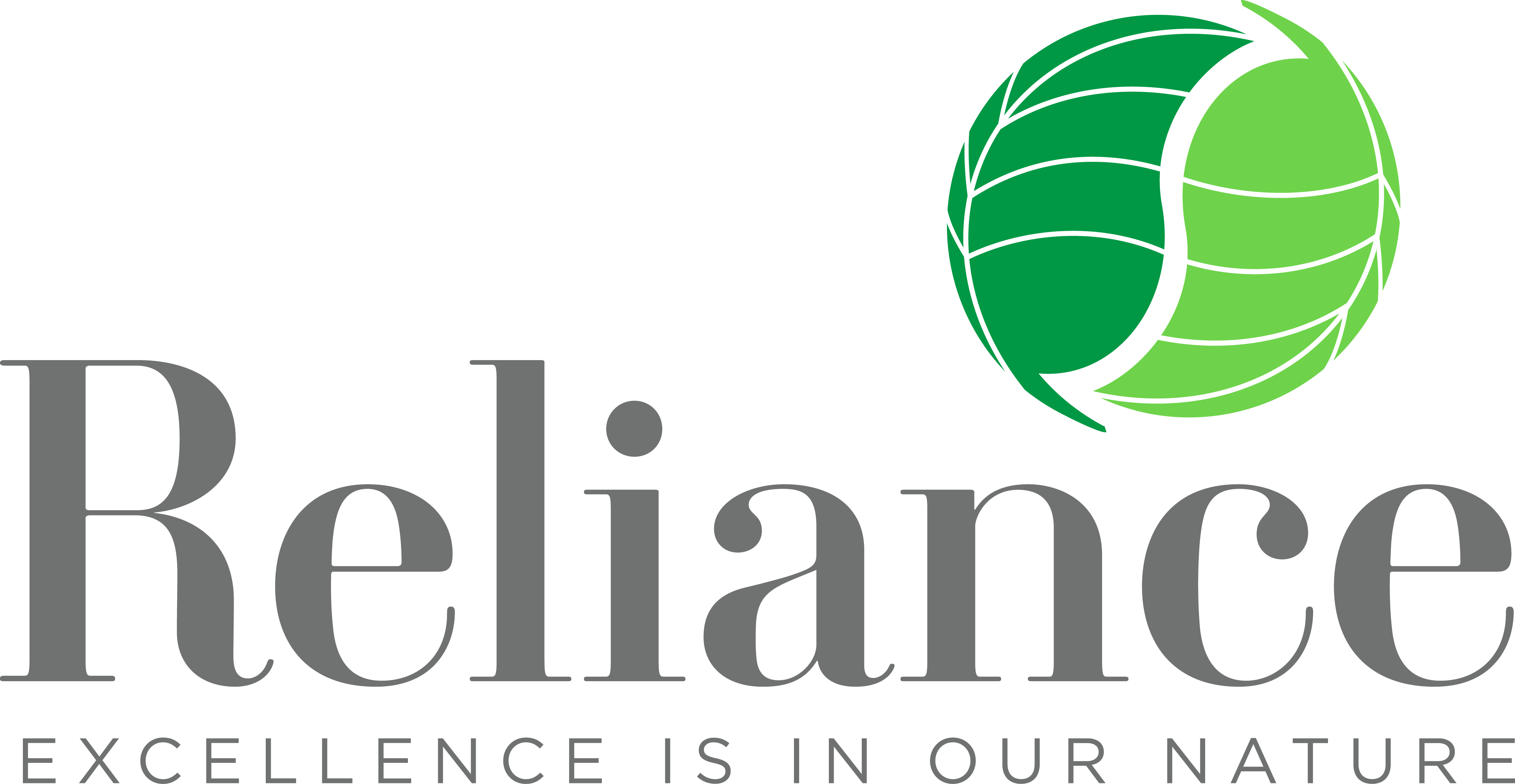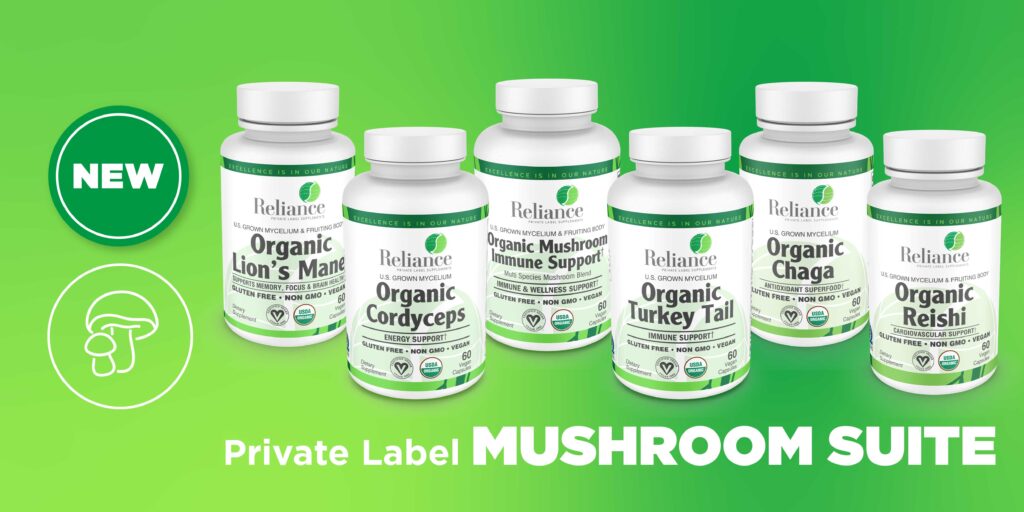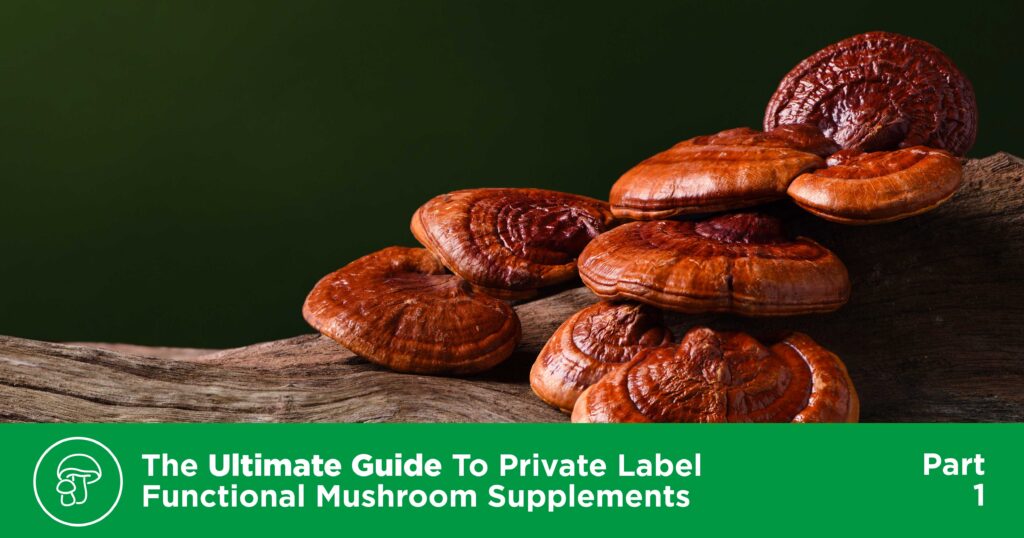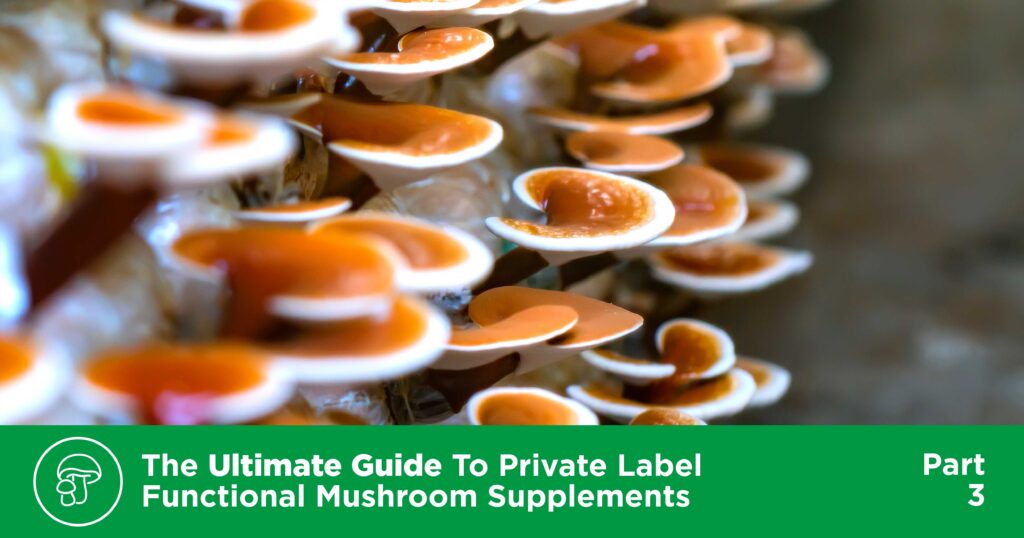This is part of our Ultimate Guide to Private Label Functional Mushroom Supplements, a complete overview of the health benefits of Functional Mushroom supplements, what makes them different from other types of supplements, why there is such consumer demand for them, and how they are made with transparent, high-quality manufacturing processes.
The amazing attributes of functional mushrooms continue to surprise us. For example, scientists have discovered that we share some genetic features with mushrooms! By analyzing their genetic material and internal structures, it’s become evident that animals and fungi (like mushrooms) once shared a common ancestor! (This common ancestor is called Opisthokonta, and it was reclassified after the publication of a 2005 paper in the Journal of Eukaryotic Microbiology.) Something that isn’t surprising, however, is that more people are discovering the “magic of mushrooms” at an astounding rate. As consumers are increasingly turning toward supplements and other natural alternatives for preventative wellness, there exists a high demand for safe and natural immune-supportive health products. Mushrooms that provide immune support and other health and wellness benefits are at the top of the list for growth, at one point rising to become the eighth-top-selling ingredient in the U.S. natural channel.
The Astounding Growth of Functional Mushroom Supplements
Mushrooms are coming out of the woodwork – or out of the woods, at least – to be sought after by consumers across the globe. Based on SPINS data used in the American Botanical Council’s Herb Market Report:
- Covering the 52 weeks ending December 29, 2019, the sales of “mushrooms (other)”— a category that includes sales of individual mushroom species as well as various combinations of them — grew 33% in 2019 compared to the previous year, making it the eighth-top-selling ingredient in the U.S. natural channel.
- Within the natural channel, “mushrooms (other)” grew 53.8% to become the top-selling ingredient in the immune-health category.
- The functional mushroom market size is forecast to reach $15.9 billion as soon as 2026, growing at a CAGR of 7.0% during the forecast period (2021-2026).
- A recent report by Grand View Research projected that the global mushroom market value is expected to exceed $50 billion in the next seven years.
- Food Navigator found that year-on-year sales for food products incorporating medicinal mushrooms have risen between 200-800%, depending on the variety.
The Top 4 Drivers of Functional Mushroom Supplement Growth
Fungi have contributed to the discovery and production of some of our most important medicines (for example, penicillin). These days, the eyes (and wallets) of the consumer have increasingly been more open to the use of natural products to support their health and wellness goals well before pharmaceutical drugs are needed. This is especially true since the pandemic. Mushrooms are becoming a big part of a somewhat newly-developed priority of self-care, with a focus on preventative wellness; a goal that lends focus to natural products that target benefits such as immunity, sleep, stress, focus, and energy.
1. The Pandemic Is Driving Overall Supplement Sales
Prior to the pandemic, dietary supplement sales in the United States increased by 5% ($345 million) in 2019 compared to the previous year. During the first wave of the pandemic (about a six week period prior to April of 2020), however, there was a 44% ($435 million) increase in dietary supplement sales relative to the same period in 2019. It was evident that in face of an unprecedented global pandemic, consumers began turning toward natural products to help bolster their immune systems and keep them healthy.
It seems as though mushrooms had been just on the cusp of breaking onto the supplement scene, and the pandemic was perhaps just the push they needed. For example, as a result of the pandemic, people began trying to get outdoors more, seeking out less populated places where they could get some fresh air and feel safe without wearing a face mask. Last year, a record number of Americans visited national parks to vacation. During these trips, people were foraging in addition to camping, star-gazing, and taking in the beautiful scenery of the parks themselves. According to Britt Bunyard, the editor-in-chief of Fungi Magazine and director of the Telluride Mushroom Festival, there has been a marked increase in foraging in general over the past decade — for wild foods, berries, and mushrooms – and the pandemic has only increased this interest. In fact, Bunyard says that Fungi Magazine has seen a “dramatic uptick in subscribers” over the past year and a half.
It would make sense that this renewed, back-to-nature interest in foraging for mushrooms, gardening, and other “make it yourself” hobbies is coming from a desire to be more self-sustaining than we are used to being, becoming less dependent upon the stores to have everything we want and need. There are even several “grow your own mushrooms” kits available online for those who don’t wish to venture too far from home.
2. Millennials are Buying More Supplements Than Ever
We have the data that four out of five Americans (86 percent) are now taking dietary supplements, but they’re not all seeking the same products. While immune support matters across demographics, different generations are also in search of supplements that address specific wellness concerns. For example, Baby Boomers want products that support bone health, memory, and cognitive function, while millennials are more interested in products that help with anxiety, stress, and energy.
In a previous post, we talked about the buying power of millennials for whole food supplements. Recent data shows that millennials are over twice as likely to buy more supplements as a result of the pandemic than their baby-boomer parents. New research by GlobalData suggests this is “down to a difference in perception when it comes to health, wellbeing, and the pandemic itself”. Many consumers will attempt to bolster their immune health with supplementation, but what’s interesting is that it’s the younger consumers who are most concerned about their health and buying more of these products, despite being in a lower-risk demographic.
3. Adaptogens Have Become Part of the Conversation
Another supplement category that has been experiencing significant growth is adaptogens, and there are several mushroom species that fall into this category. Adaptogens are non-toxic substances specifically from plants (including flowers and fungi) that can help the body adapt and respond to physical and mental stressors. This is an important aspect of wellness since chronic exposure to stressors can have long-term impacts on health.
The use of adaptogens can be traced back thousands of years to their use in Ayurveda, Traditional Chinese Medicine, and more. Research into adaptogens indicates that they may be able to offer a number of health benefits, and based on an analysis of social media conversations about them, consumers are aware that different types of mushrooms offer adaptogenic properties:
Consumers are talking about adaptogens and mushrooms together. The table below shows how often various mushroom and adaptogens were mentioned together in social media posts:

4. Biohacking & Nootropics Are Becoming More Common
Two trends that have gained popularity over the past decade are Biohacking and Nootropics. Both of these terms were initially brought to market in the spirit of optimizing mental and/or physical health and/or improving quality of life by somewhat public figures such as Tim Ferriss, Dave Asprey, Tesla’s Elon Musk, and Twitter’s CEO Jack Dorsey.
Biohacking is essentially experimenting with “do-it-yourself”, usually ON yourself, biology. This generally consists of making specific nutritional or other lifestyle changes that will bring about increased health, wellbeing, or functionality of the body or mind. Biohackers might be looking to achieve anything from quick or dramatic weight loss to enhanced memory or mental clarity.
Nootropics are often used by biohackers in this way. They are substances often found in natural products, dietary supplements, or even some foods and beverages with the goal of providing increased cognitive function. The purpose of using a nootropic may be anything from improving mood to increasing focus, productivity, or attention span. A common nootropic that most people probably don’t even realize they are using to “biohack” themselves is caffeine.
There are almost a dozen mushroom species being used in this way – by biohackers, to improve health or performance, specifically for their nootropic properties, or both – and research supports that these selected mushroom species do have properties that can be beneficial to humans. The mushroom species being most commonly used (and studied) for these purposes are Lion’s Mane, Turkey Tail, Maitake, Shiitake, Reishi, Chaga, Cordyceps, Royal Sun, King Trumpet, and other Oyster mushroom varieties.
Where Will They Grow Next?
With possibly millions of mushroom species across the world, and ongoing research looking to discover them and their potential health benefits, the future of the mushroom market is virtually limitless. Mushrooms are already being used in foods and beverages, in dietary supplements, for natural plant protection, in skincare and cosmetics, and even in a new class of drugs (called “mushroom pharmaceuticals”). There’s a huge market for mushrooms in the ever-growing meat substitution category, as well.
These functional mushrooms offer a number of health benefits, and with continued double-digit growth in the natural retail channel, it’s clear that the mushroom ingredient category is poised for mainstream success for many years to come.
Key Takeaways
- Functional mushroom are experiencing significant growth, becoming the top-selling ingredient in the immune-health category.
- The pandemic continues to “lift all boats” for supplements, and Millennials are snapping up functional mushroom supplements faster than ever.
- Adaptogens, Biohacking, and Nootropics have entered the public conversation, with functional mushrooms providing so many health benefits.
➤ Learn how to select the right private label functional mushroom manufacturer






